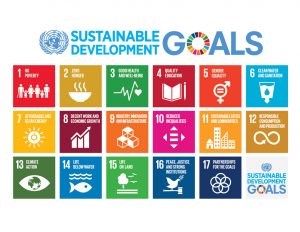
NEDA wants excise taxes to supply P16 billion for flagging SDG programs
EXCISE TAXES worth P16 billion generated from alcohol, tobacco and vape products could be tapped next year to help support the Philippines’ efforts in attaining the United Nations sustainable development goals (SDGs), the National Economic and Development Authority (NEDA) said on Tuesday.
“What we want to do is direct those initiatives to the targets where we are lagging,” Rosemarie G. Edillon told reporters on the sidelines of the United Nations Development Programme (UNDP) Investors Map for the Philippines launch.
Under Republic Act No. 11467, 20% of excise taxes from alcohol, heated tobacco products, and vapor products (vapes) will be allocated to the SDG effort.
The law, signed in 2019, was delayed in implementation due to the coronavirus pandemic.
According to NEDA, the Philippines is lagging in SDGs 2 (zero hunger), 5 (gender equality), 8 (decent work and economic growth), 9 (industry, innovation and infrastructure), 10 (reduced inequalities), 6 (clean water and sanitation), 11 (sustainable cities and communities), 13 (climate action), 16 (peace, justice and strong institutions), and 17 (partnerships for goals).
The Philippines has committed to hit the 17 SDGs by 2030. Last year, the country fell three spots in the global SDG achievement ranking to 98th out of 166 countries.
Ms. Edillon said the government will need the assistance of private sector investment to help the country achieve the SDGs.
The UNDP’s Investor Map for the Philippines outlines the key private sector investments needed for the country to achieve 17 SDGs.
Rafael C. Lopa, partner consultant for the Philippines SDG Investor Map, said investment opportunity areas include education, food and beverage, infrastructure, financials, technology and communications, renewable energy, and healthcare.
“The relevance of this initiative can be best measured by the number of actual investments that materialize,” he said at the launch.
The UNDP has completed five other SDG Investor Maps within ASEAN, according to Devahuti Choudhury, senior SDG impact specialist for Asia-Pacific with the UNDP Sustainable Finance Hub.
The UNDP has also completed SDG Investor Maps for Indonesia, Thailand, Cambodia, Vietnam, and Malaysia. It has yet to complete an investor map for Laos.
Asia-Pacific investor maps are weighted towards food and beverage (24%), renewable energy (22%), healthcare (16%), and infrastructure (15%) ventures.
“All in all, we are looking at directing capital to where it can make the most difference to the people and the planet,” Ms. Choudhury said.
To date, the UNDP has completed 40 SDG Investor maps worldwide, with 20 still in progress. — Beatriz Marie D. Cruz



